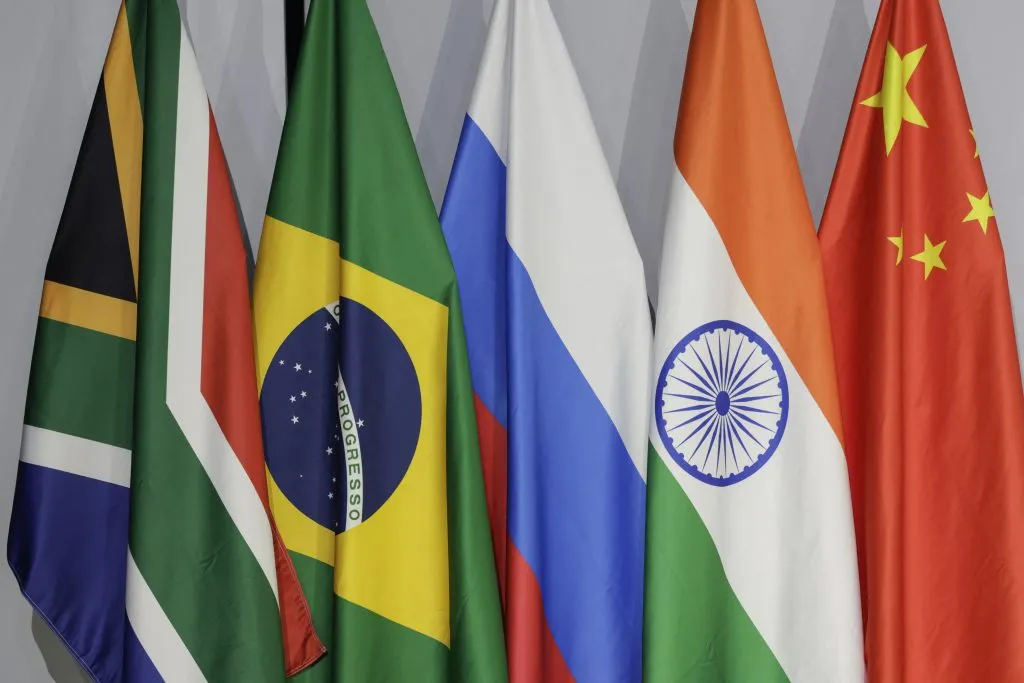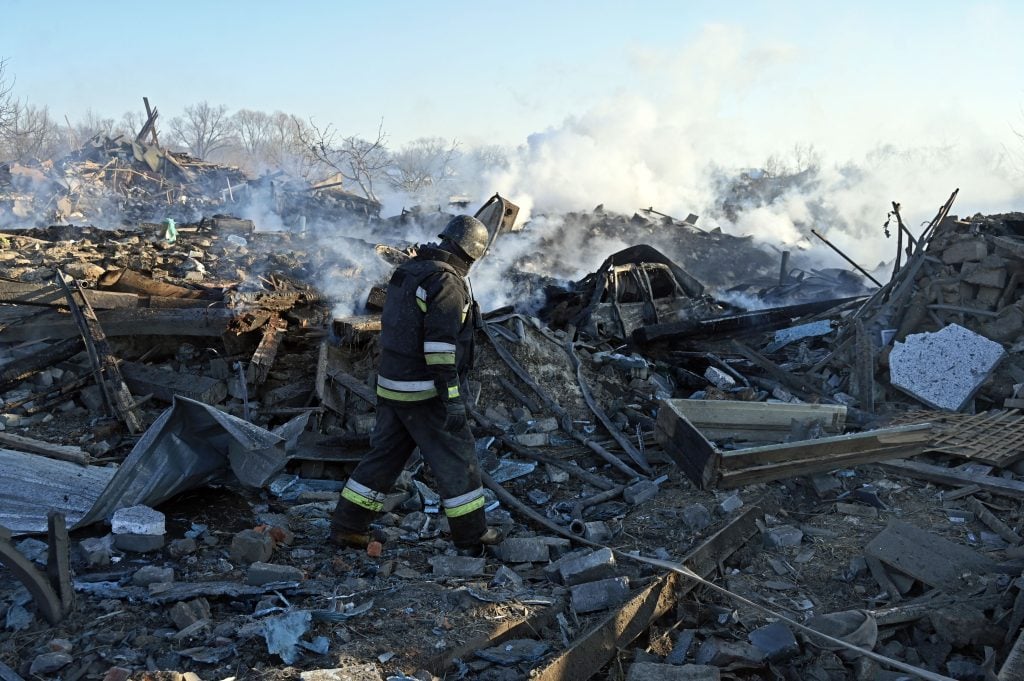
These are tough days for Africa’s second-largest economy, as it lurches towards elections next year. On 27 April, South Africa will celebrate 30 years of democracy – a story that began with so much hope as the country’s first elected president, Nelson Mandela – affectionately known as Madiba – charmed the world. Investors queued up and the government unshackled South African markets for prosperous times ahead. That tale is unravelling three decades later as politicians wrangle amid the ruins of a declining economy.
When you hear that one of the country’s biggest investors and Afro-optimists, Fred Robertson, is a bit downcast, you know matters must be grim. Of all the millionaires I have met in Africa in the last 20 years, the avuncular Robertson is by far one of the most resilient and positive.
“Nothing’s great in South Africa, right now,” he says with a heavy heart at his home in Bantry Bay overlooking the sea in Cape Town.
“We need a few more Madibas in our life. I don’t think Cyril [Ramaphosa] can do something.”
Aside from the leadership deficit, what is going wrong in the economy? “Oh, that is a very difficult question. It is not just about the elections, it is about everything else that has gone wrong. Energy, inflation, not just in South Africa, but all over the world.
“Poverty is just as bad; the criminality is so bad. We had our own criminals, now we are getting them from all over because South Africa is open; our systems don’t work at the borders. It is just too much for our law enforcement to deal with,” says Robertson.
Always room for optimism
Despite the economic heavy weather, Robertson says he and his business partners at Brimstone Investment are continuing to invest heavily in South Africa. The firm has investments in reinsurance, media, telecoms, healthcare, education, property and fishing.
Now executive chairman, co-founder Robertson has witnessed South Africa’s ups and downs first hand. In 1995, the majority in the fresh democracy of South Africa tasted political freedom – but found economic freedom elusive.
That year, Robertson flew to the United States with his business partner and accountant Mustaq Brey, to see how black empowerment was done. They saw investment as a way to empower the masses and flew back inspired.
Short of startup capital, the pair decided to go directly to the people. One of their first stops was to see an old friend at the Aden Service Station, Athlone, in the Cape Flats area of Cape Town. No-nonsense Makkie Isaacs was in the thick of pumping petrol on a busy, sweaty, afternoon when Brey and Robertson called in in their beat-up brown Audi.
For Isaacs the petrol station was his life; his father, a vegetable hawker, saved for years to buy the land on which it was built.
“We’re starting this company; do you want to invest in it?” Robertson and Brey called out across the crowded, noisy, forecourt. “I thought they were collecting for a mosque or a charity,” recalled Isaacs, more than 20 years later.
The two asked for R12,000. Isaacs wiped his hands and put his cheque book onto the boot of the Audi and wrote a cheque for R15,000.
“He wrote the cheque in a hurry because he wanted to serve petrol – and we told him it was too much. He said, keep the rest because you guys are going to need it. I don’t know how this company is going to go, so you keep the rest for petrol money!” laughs Robertson.
With the stroke of a pen, on the boot of a car, Isaacs became a pioneer investor in Brimstone, with share certificate number seven. By 2017, that money had increased in value 34-fold. To this day, Isaacs buys Brimstone shares every year as regularly as the birds fly south for winter.
With the help of such investment, more than a quarter of a century later Brimstone has a market capitalisation of more than a billion rand and owns assets many times that.
Triumph against the odds
Brimstone listed on the Johannesburg Stock Exchange in 1998, in the first flush of success and what Robertson calls the “days of whiskey and cigars”.
On the day of the listing a crowd of first-time investors gathered for the debut of their shares on the JSE at the Good Hope Centre in the heart of Cape Town’s District Six.
The choice of venue was symbolic. Beginning in the late 1960s the apartheid authorities had torn down the homes of Robertson and of 60,000 of his neighbours, when they designated District Six a “white” area of the city.
Just yards from where the Good Hope Centre now stands, police ordered Robertson and thousands of others, clutching their meagre possessions, onto the back of trucks and into exile.
“Families were taken apart. My sisters were all living in different townships. It took us years to find each other,” Robertson once told me with rare sadness.
All this was a painful memory on that moist day in July 1998 when Brimstone listed the shares of the erstwhile lost souls of District Six on the Johannesburg Stock Exchange.
To mark the occasion the company set up a live TV link up between the bourse in Johannesburg and the teachers, mechanics and petrol station-owners turned investors back in Cape Town.
Also on that first day, as often happens with a listing, the share price dipped. “People I had known for years were coming up to me on that day and saying: ‘Hey Fred! What are you doing with our money?’ ”
Yet this show of investment for the people had caught the imagination of a man who once coined a quote that could have been a motto for Brimstone: “The greatest glory in living is not in falling, but in rising every time we fall.”
This quote came from a former amateur boxer who hit the canvas a few times, on his way to running the country that had once incarcerated him. In his Cape Town office, President Nelson Mandela picked up the telephone and dialled Robertson.
“I had a personal relationship with Mandela. I suppose many say this about him, but when he came out of prison, a few weeks after that, before he went to hotels, he actually slept at my place. We always kept in touch and when I started Brimstone, he phoned us and said: ‘Fred you’ve got to come and see me’,” says Robertson.
“And off we went and he said he wanted to be in this company. I told him everybody has to pay for their shares, so he said he wants to pay for his own shares. He asked how much he could buy; he then took out his cheque book and wrote us a cheque for R150,000 as an investment. So, he is one of our original investors!”
The path of true investment is rarely smooth for Brimstone. By the end of 1998 the company’s share price was rock bottom, dropping from R6 to 18 cents. The financial crisis of the year before had hit Brimstone hard, and in Robertson’s own words the vultures were circling. An offer of R150m (about $8.6m) was put forward to buy the founders out. They could have taken the money and run.
Robertson told me years later: “If we had taken the money of the people of the Cape Flats – we would have to flee Cape Town if we did something like that!”
Insurance setback
The next decade saw a setback that had nothing to do with the markets. Lion of Africa Insurance was a brave new venture – an empowered company bidding to take on a lucrative, competitive, industry in South Africa. It was tailor-made for the Brimstone dream of economic empowerment for the people. Robertson entrusted it to people he had known for years.
Sadly for Brimstone, many of these very people concocted insurance claims and pocketed the money. That left Robertson feeling betrayed and led to a police investigation; I interviewed him live on television at the time and he was as near to incandescent as I have ever seen him.
“It was not just a fraud case, it was also the wrong market segment, and the parastatals weren’t doing any repairs or maintenance. Power stations were blowing up, trains were derailing and all of those kinds of things. It was just the wrong market segment for them to be in. The municipalities are not fixing the roads and potholes are showing up everywhere; and there, again, no repairs and maintenance. So, people would have motor claims and come back knocking at Lion’s door,” he says.
“So, it was just best to take your bloody nose and get out of the way. Business is like that sometimes: you’ve got to know when to go in and when to get out. We’ve had some pretty good successes and we’ve had a few failures and we’ve looked at what we can learn from that.”
Solidarity amid struggle
Robertson believes times are even tougher in South Africa than they were in the financial crises of yore.
“I must say it is sad to see things fall apart all around us and the demands on a democratic government were so big. They did deliver as best they could but even they were infiltrated by rent seekers and opportunists,” he says.
One of the biggest bugbears for business is the growing number of power cuts. “It is hard on small businesses, it is hard on poor people, it is hard on the middle class, even. A guy can’t afford to put solar on his roof and lithium batteries in his home,” he says.
“You have people living in bubbles now and the gap between those who have and have not is getting bigger. Entrepreneurs – they survive. It is harder but entrepreneurs always survive. People are going out and fixing things themselves. Community groups are making sure the criminals don’t steal the copper wire.”
In the midst of it all, Brimstone is trying to invest its way through the gloom. The jewels in the crown, fishing outfits Sea Harvest and Oceana, are making money by exporting hake, prawns and clams to the growing and lucrative market in Australia. “And the exchange rate works in our favour,” says Robertson.






Recent Comments